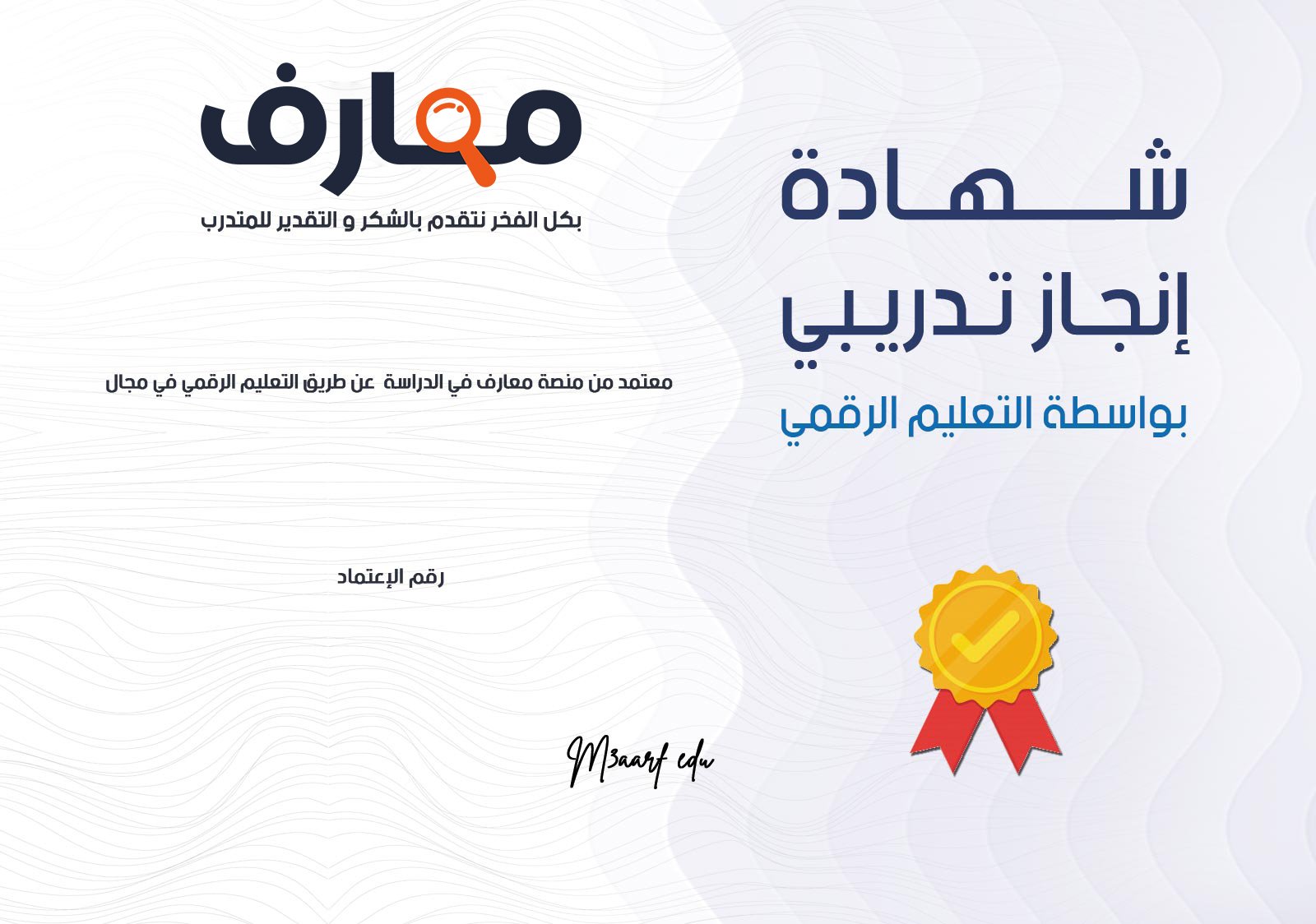
13 درس

نعم

تحميل


54 تقييمات
5/5
very good
GOOD
جيده
Good
Thank you I benefited a lot from the course
Wonderful
الدوره جداً ممتازه
ممتازه
شكرا
very good
nice trainning

